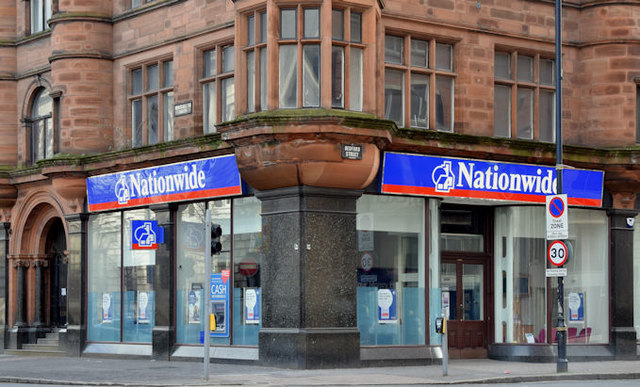The number of mortgage approvals across the UK fell to 39,600 in January, marking the fifth running monthly fall in approvals for house purchases.
New Bank of England (BoE) figures showed that approvals slipped from 40,500 in December.
According to the Bank’s latest data, and if the onset of the COVID pandemic and period immediately thereafter is excluded, January’s house purchase approvals were at the lowest level since January 2009 (32,400).
Approvals for remortgaging, which only capture remortgaging with a different lender, also fell to 25,400 in January, from 26,200 in December. This was the lowest level since July 2012, when they reached 24,400.
The BoE also reported that net borrowing of mortgage debt by individuals dropped from £3.1bn in December to £2.5bn in January. Gross lending, however, slightly increased from £23.0bn in December to £23.3bn in January, while gross repayments climbed from £21.1bn to £21.5 bn.
Responding to the latest BoE figures, managing director of capital markets and finance at LiveMore, Simon Webb, said: “It’s no surprise that net lending fell in January as many of these mortgages would have started their journey around the time of the fallout from the infamous mini-Budget last September. Lenders were removing products and raising rates quite substantially which would have put off potential buyers.
“Another fall in house purchase mortgage approvals is not a good sign for the mortgage market going forward. This is the fifth consecutive month approvals have dropped and is almost half of the 74,400 that went through last August.
“Uncertainty remains in the housing market as supply and demand slows with less people looking to both buy and sell. Although mortgage rates are stabilising, there is no let-up in the high cost of living, which will put some people off making large financial commitments like buying a house.”
However, development director at TMA Club, Lisa Martin, suggested there are still “some reasons to be optimistic” for the mortgage market.
“Not only has demand been greater than expected in the early stages of this year, but competition between lenders has driven down mortgage rates with the average five-year fixed falling below 4% in early February for the first time since the government’s mini-Budget,” Martin commented.
“While an unpredictable market means we may see rates start to rise again, as a result of the short term swap rates rising, rates are at present, relatively low compared to recent history.
“Brokers should bear in mind the financial pressures that many homebuyers will be feeling and ensure they have a holistic understanding of each individual customer’s circumstances in order to provide the bespoke advice needed, especially at this time.”
Latest News
-
Metro Bank hits record growth in corporate and commercial lending
-
Intermediary confidence softens slightly in Q4 – IMLA
-
Record flows drive Quilter’s AUMA to £141bn
-
8.6 million savings accounts exposed to tax
-
Mortgage lending rises 16% in 2025 – UK Finance
-
Nationwide doubles households who can benefit from 0% green home borrowing
Mortgage Advice Bureau and AI in the mortgage sector
Chief executive officer at Mortgage Advice Bureau, Peter Brodnicki, and founder and managing director at Heron Financial, Matt Coulson, joined content editor Dan McGrath to discuss how Mortgage Advice Bureau is using artificial intelligence to make advancements in the mortgage industry, the limitations of this technology and what 2026 will hold for the market
Perenna and the long-term fixed mortgage market

Content editor, Dan McGrath, spoke to head of product, proposition and distribution at Perenna, John Davison, to explore the long-term fixed mortgage market, the role that Perenna plays in this sector and the impact of the recent Autumn Budget
NEW BUILD IN FOCUS - NEW EPISODE OF THE MORTGAGE INSIDER PODCAST, OUT NOW

Figures from the National House-Building Council saw Q1 2025 register a 36% increase in new homes built across the UK compared with the same period last year, representing a striking development for the first-time buyer market. But with the higher cost of building, ongoing planning challenges and new and changing regulations, how sustainable is this growth? And what does it mean for brokers?
Does the North-South divide still exist in the UK housing market?

What do the most expensive parts of the country reveal about shifting demand? And why is the Manchester housing market now outperforming many southern counterparts?
In this episode of the Barclays Mortgage Insider Podcast, host Phil Spencer is joined by Lucian Cook, Head of Research at Savills, and Ross Jones, founder of Home Financial and Evolve Commercial Finance, to explore how regional trends are redefining the UK housing, mortgage and buy-to-let markets.
In this episode of the Barclays Mortgage Insider Podcast, host Phil Spencer is joined by Lucian Cook, Head of Research at Savills, and Ross Jones, founder of Home Financial and Evolve Commercial Finance, to explore how regional trends are redefining the UK housing, mortgage and buy-to-let markets.
© 2019 Perspective Publishing Privacy & Cookies









Recent Stories